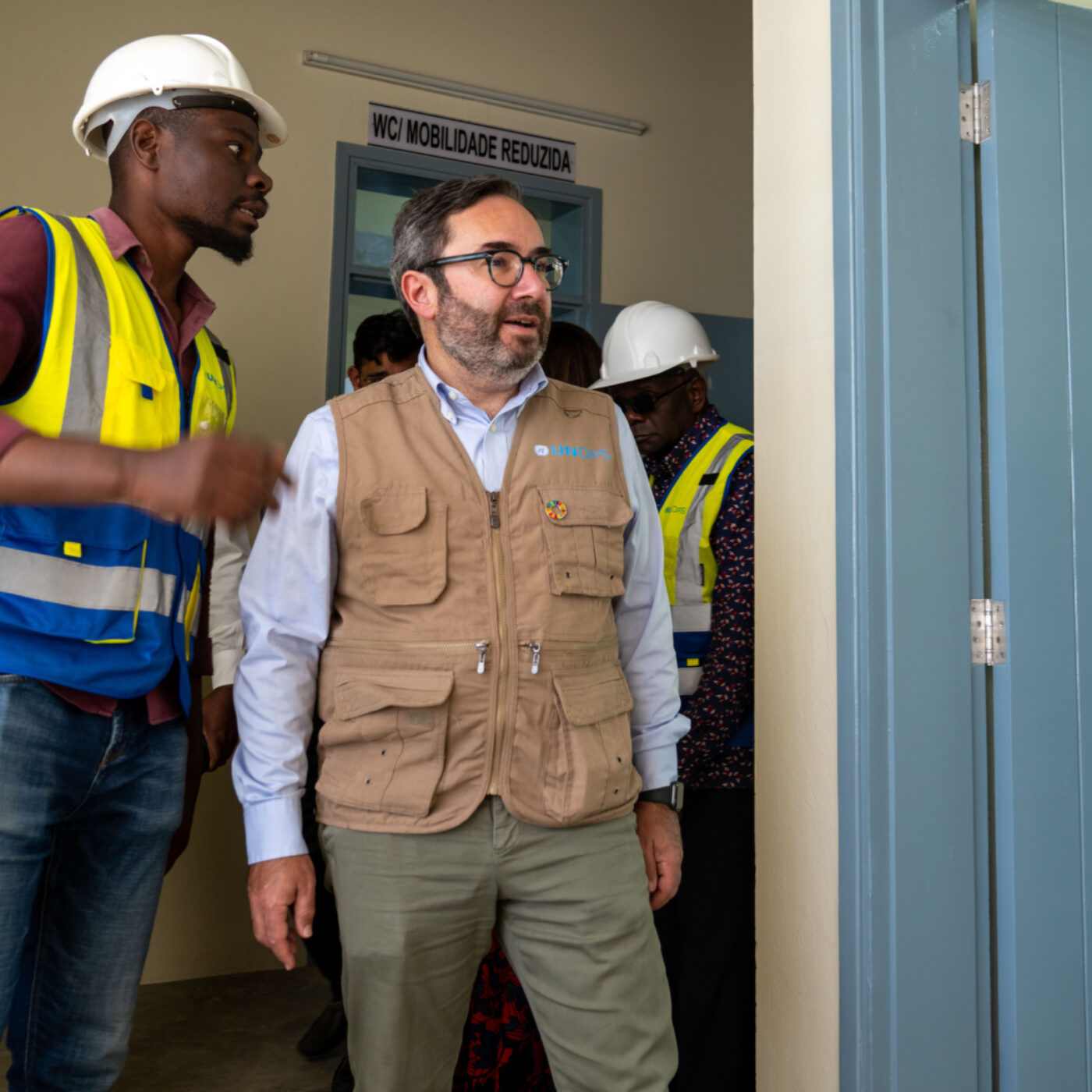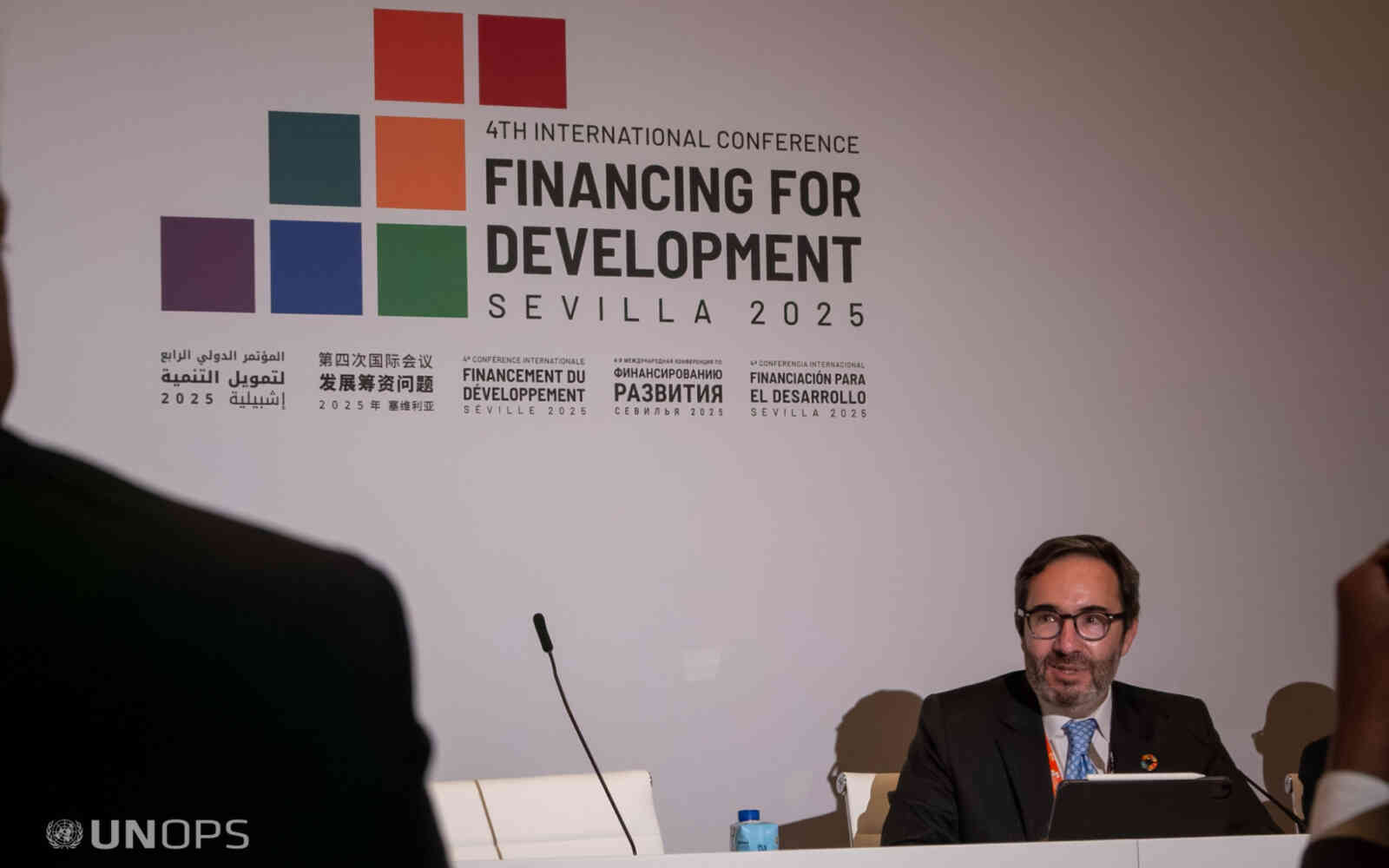The United Nations Office for Project Services (UNOPS)

Expanding implementation capacity
Implementation: It’s where policies, intentions and financing come together in practice.
We believe that sound, effective and impactful implementation is critical for turning global ambitions into tangible outcomes where it’s needed most. Because without it, even well-designed policies and adequate funding will not achieve their intended goals.
With our focus on practical solutions, UNOPS is committed to expanding the implementation capacity of our partners to advance sustainable development and help shape a future where people and the planet can thrive.
What are the challenges?
Implementation is complex. Bridging vision with action on the ground requires balancing competing interests, adjusting strategies mid-performance, and ensuring coherence across sectors and with a diverse range of stakeholders – with varied understandings of implementation based on their roles, priorities and objectives.
Effective implementation can also be shaped by political realities. Various political factors can lead to a disparity between policy intent and action on the ground, hindering coordination and momentum towards shared development goals.
Common challenges in implementation include:
Need for speed and scale: The push for large-scale, transformative projects is often hampered by insufficient capacity to deliver these effectively, leading to budget issues and delays.
Stakeholder expectations: The selection of implementers is often influenced by national interests or existing partnerships, rather than solely by technical capacity, which can limit effectiveness.
High transactional costs: Long and complex chains of financial transactions can reduce direct benefits to communities, highlighting a need for shorter, simplified processes that manage risks and accountability, while supporting localization and the participation of local communities.
Varying definitions of success: Donors often focus on quantifiable outputs – like schools built or people trained, while local communities prioritize broader outcomes – such as whether children can afford to attend school. This can create friction and potentially lead to mistrust and resistance.
Insufficient focus on sustainability: An emphasis on new projects over maintaining existing ones can increase vulnerability to shocks and dependency (such as increased debt).
Competition among implementers: Despite calls for coordination, competing policy agendas can make reform difficult within the multilateral system.

Our world is undergoing unprecedented change, challenging multilateralism and development cooperation. While the rapid shifts in policy and financing attract significant attention, one crucial pillar, implementation, remains too often overlooked. This is a critical oversight.
Implementation as a bridge
Strong and effective implementation offers a unique and practical space for collaboration.
It can:
Bridge divides and unite diverse actors around shared outcomes – reducing fragmentation, and transforming collective ambition into meaningful, lasting change
Restore trust in the multilateral system to deliver global public goods
Forge new, long-term partnerships
Help build local capacity and empower communities
In areas like infrastructure, food systems and climate action, sustainable and inclusive implementation can also unlock collective impact and address multiple challenges at the same time – from expanding renewable energy, to enhancing agricultural productivity, to advancing access to education.
Our focus on implementation
UNOPS is dedicated to action. We implement projects in more than 130 countries and territories around the world, on behalf of the UN and together with over 200 partners.
Working across humanitarian, development, and peace and security efforts, we help governments and partners expand their implementation capacity and accelerate project delivery – overcoming bottlenecks, and ensuring the achievement of intended objectives.
From strengthening national capacity – including enhancing systems and processes of public institutions, to providing technical services and integrated solutions, to fostering sustainability and inclusion, UNOPS is committed to helping partners leverage the potential of implementation and scale up impact where it’s needed the most.











